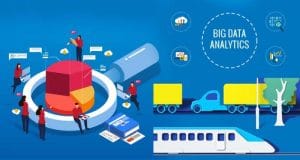In today’s rapidly evolving digital landscape, AI-Powered Business Intelligence has become integral to transforming how organizations analyze data and make decisions. As we navigate through 2025, the integration of AI into BI systems is not just an enhancement—it’s a necessity for businesses aiming to stay competitive and agile.
The Evolution of Business Intelligence
Traditional BI systems have long relied on historical data analysis, requiring significant manual effort to extract insights. While effective to a degree, these systems often fall short in providing real-time, predictive insights necessary for proactive decision-making.
Enter AI-powered Business Intelligence. By leveraging machine learning algorithms and advanced analytics, AI-infused BI tools can process vast amounts of data swiftly, uncover hidden patterns, and provide predictive insights that were previously unattainable. This evolution enables businesses to move from reactive to proactive strategies, anticipating market trends and customer needs with greater accuracy. McKinsey & Company+10alliant.edu+10Zebra BI+10
Real-World Applications of AI–Powered Business Intelligence
Leading organizations are already reaping the benefits of AI-enhanced BI systems:
- JPMorgan Chase has integrated AI across its operations, resulting in a 30% reduction in servicing costs and a projected 10% decrease in operational headcount, particularly in areas like fraud detection and process efficiency. Business Insider
- Salesforce is advancing its AI capabilities through potential acquisitions, such as Informatica, to enhance data management and support AI-driven decision-making. Investor’s Business Daily
- Snowflake has raised its annual product revenue forecast, attributing growth to increased demand for AI and data analytics services . Reuters

Key Benefits of AI-Powered Business Intelligence
- Enhanced Predictive Analytics: AI algorithms can forecast future trends by analyzing current and historical data, enabling businesses to make informed strategic decisions.
- Automated Data Processing: AI streamlines data collection and analysis, reducing manual workloads and accelerating the decision-making process.
- Improved Data Accuracy: Machine learning models can identify and correct data anomalies, ensuring higher data quality and reliability.
- Personalized Insights: AI can tailor data visualizations and reports to individual user needs, enhancing the relevance and usability of BI outputs.
Challenges and Considerations
While the integration of AI into BI systems offers numerous advantages, it also presents challenges:
- Data Privacy and Security: Ensuring the protection of sensitive data is paramount, requiring robust security measures and compliance with regulations.
- Skill Gaps: The adoption of AI technologies necessitates a workforce skilled in data science and analytics, highlighting the need for ongoing training and development.
- Integration Complexity: Merging AI capabilities with existing BI infrastructure can be complex, requiring careful planning and execution.
The Future Outlook
As AI continues to evolve, its role in BI will become increasingly sophisticated, offering deeper insights and more intuitive user experiences. Businesses that embrace AI-powered Business Intelligence will be better positioned to adapt to market changes, meet customer expectations, and drive innovation.
In conclusion, the fusion of AI and BI is reshaping the business landscape in 2025. Organizations that leverage this synergy will not only enhance their decision-making capabilities but also gain a competitive edge in an increasingly data-driven world.






